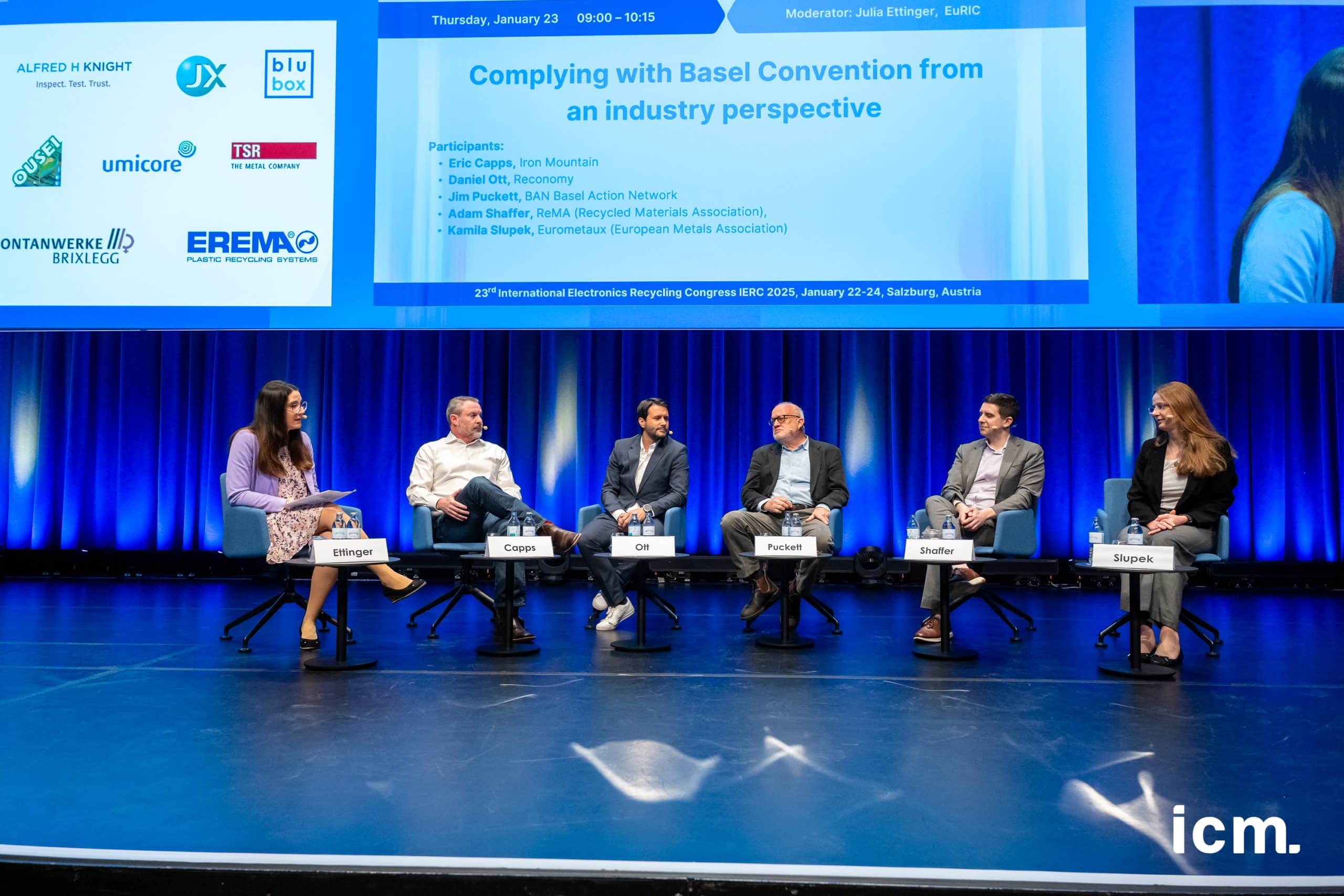
Electronics recyclers warn: ‘ The system could get stuck ’
The new Basel Convention dominated the latest IERC in Salzburg, Austria more than anything else. ‘It’s a new reality and it’s not going to be easy,’ says Kamila Slupek of the European metals association Eurometeaux. As a result of the recently adopted amendments to the convention, which entered into force on 1 January, international shipments of e-waste and scrap for recovery (including recycling) or disposal, are allowed only with a prior, very detailed, written approval of the importing country and any countries of transit.
COMPLEX PROCEDURES
It is this so-called PIC (prior informed consent) regulation that worries electronics recyclers shipping materials across borders between OECD and
non-OECD countries. ‘We need a system that is more efficient and supports circularity but I doubt if that’s really the case,’ says Paul Hagen, head of environment law firm Beverage and Diamond. ‘The revision text of Basel Convention alone is 50 pages and in six languages. Then there’s the complex PIC documentation – so much paper-filling work. I mean, how do you want to get that all over by email?’
HIRE MORE STAFF
Eurometeaux’s Kamila Slupek warns that ‘the system could get struck’ because of added bureaucracy. ‘More work means companies will be forced to hire more staff to get the notification paperwork organised, which means higher costs. But businesses have no choice: if it is not done in a
workable way, they get stuck, our whole industry gets stuck.’ There are some major challenges with implementation, agrees Eric Capps of US-based IT management services provider Iron Mountain. ‘But, hey, the world is not ending. We’re gonna take a look at our downstream, see where materials are going and make a reset. I’m quite sure we’ll get there.’
VULNERABLE PLACES
For Colombia-based Daniel Ott of electronics recycling consultancy firm Reconomy, it is not that simple, especially not in the region where he is
active. ‘Even with the necessary permits in place, in some countries in Latin America you really don’t know if they will go according to regulation.’
According to Ott, the biggest challenge awaits small countries and islands in the Caribbean. ‘You cannot expect them to be compliant and
organised from one day to the next. With the result they will no longer be able to ship their e-waste and so lock themselves into a growing e-waste
mountain.’
BAD THINGS’ TO HAPPEN
It’s a big and serious risk, agrees Jim Puckett of environmental pressure group Basel Action Network. ‘We know from experience that bad things
are going to happen when materials get stuck on islands or in a small country such as El Salvador. You’ll see more dumping, illegal shipments and bad recycling practices that you were trying to prevent with more regulation.’ […]
Source: Recycling International, March/April 2025